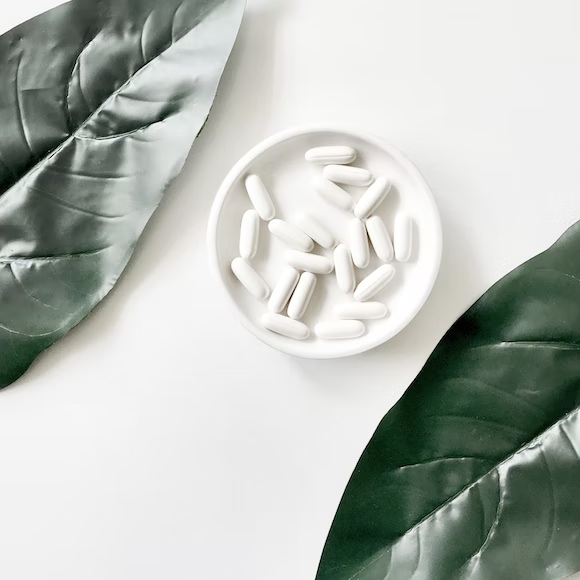IBS stands for Irritable bowel syndrome, which is a long-term, albeit common, condition which affects the digestive system. IBS can cause mild to severe discomfort and pain.
Before knowing how to treat IBS, you must know what symptoms and causes you are working with.
Symptoms of IBS
While the symptoms of IBS can vary quite heavily between individuals, and can affect some worse that others, these are the most common and recognised symptoms of IBS:
- Abdominal pain and stomach cramping
- Bloating and swelling of your stomach
- Excessive wind
- A change in bowel habits, such as constipation, diarrhoea or in some cases, both.
- Urgent need to go to the toilet
- Passing mucus
- Feeling as though your bowels are never fully empty.
Less common symptoms, but still ones that are normal:
- Fatigue and a lack of energy
- Feeling sick
- Bladder problems – needing to rush to the bathroom, waking up at night to urinate or difficulty emptying bladder
- Incontinence
- Pain during intercourse
- Backache
These less common symptoms can have a significant and negative impact on a sufferers day-to-day life, as well as a psychological impact. As a result, anxiety and depression can manifest themselves in those with IBS.
What are the causes of IBS?
There no exact cause attributed to IBS and the causes are largely unknown. Experts have found through research that IBS is probably related to problems with digestion and an increased sensitivity of the gut.
- Problems with digestion – the movement of food through your body through squeezing and relaxing muscles is disrupted by IBS. IBS makes the food move a lot quicker or a lot slower, which is what causes the complications and pain. If your system is moving too quickly it can cause diarrhoea because the body does not have enough time to absorb the water from the food. In contrast, if the system is moving too slowly it will cause constipation as too much water is absorbed.
- Increased gut sensitivity – A significant amount of sensations come from your digestive system, and the nerves in your digestive system communicate signals to the brain. These signals indicate hunger, feeling full or needing to go to the toilet. Medical experts expect that people with IBS are oversensitive to digestive nervous system signals. So, for example, what people without IBS may experience as mild indigestion, people with IBS will experience as a painful, distressing and persistent abdominal pain.
- Psychological – While not claiming IBS is “all in the mind”, there is evidence to suggest that psychological factors can be a cause of some of the symptoms of IBS. Intense emotion can trigger depression and anxiety which can disrupt the digestive system as a result. This is common in people without IBS as well, a sudden change in bowel habit can be a result of a stressful situation. Some people who suffer with IBS have reported having suffered a traumatic event, usually in their childhood, such as illness, bereavement, abuse or neglect.
What are the triggers of IBS?
Apart from all of the information provided above, there have been to be certain triggers that can affect individuals. However, triggers can vary between people, but the most common ones include:
- Fizzy Drinks; coca-cola, pepsi, lemonade, fanta etc.
- Drinks which contain caffeine; coffee, tea or certain carbonated drinks.
- Alcohol
- Chocolate
- Fatty or fried foods
- Processed foods and snack foods.
To help identify and control your triggers, it is wise to keep a ‘food diary’. That way you know what you are putting into your body and match it up with any complications you face as a result of IBS.
Treating IBS with an IBS friendly diet:
For this, there is no one solution for all with IBS in terms of a diet. However, making dietary changes can help to combat and relieve symptoms.
Here are some tips when it comes to your diet, that may help in the long term.
- Modify the amount of fibre intake
- Regular meals and not rushing when eating
- No skipping meals or leaving too long of a gap between meals
- Drinking plenty of water – around 8 cups of water a day, this can include herbal teas that do not have caffeine.
- Restricting caffeine intake
- Reducing the amount of alcohol and fizzy drinks you consume
- Limiting fresh fruit to 3 portions a day.
- Eating oats, such as porridge or an oat-based breakfast cereal, can reduce the amount of wind and bloating you experience.
- Avoid chewing gum and sugar free sweets – the gum makes you swallow more air than usual and can cause bloating and abdominal pain.
Treating IBS with exercise:
Many people have told their doctors that regular exercise helps to lessen the symptoms of IBS. This is because it gets the system working better, and makes you generally more fit.
If you aim to do around 15 minutes of exercise like fast-walking or cycling a week, you could start to see improvement in your condition. This exercise should be strenuous enough to increase breathing and your heart rate.
Other medication known to relieve IBS include Buscopan and antacids like Pepto Bismol and Rennies (Calcium Carbonate). Non-medical remedies that are known to be effective include drinking mint tea, green tea and probiotic yogurt such as Yakult and Actimel.
Reducing stress to treat IBS:
This is easier said than done, but reducing your stress levels can reduce the severity of the symptoms of IBS. Here’s how you can cope with stress:
- Any relaxation techniques; breathing exercises or meditation can be beneficial.
- Light exercise; yoga or pilates, for example.
- Regular exercise – walking everyday can be a simple way of reducing stress.
Treating IBS with medication
There are a number of medications which can be used to treat IBS, including:
- Laxatives – these are used to relieve the symptoms of constipation e.g Senokot and Movicol
- Antimotility medicines – these are used to help relieve the symptoms of diarrhoea.
- Antispasmodics – these are used to help to reduce stomach cramping and all forms of abdominal pain.
- Low-dose antidepressants – while these were designed to originally reduce and treat depression, a side effect is that they can help to reduce stomach pain and cramping, so are sometimes used to do so.
This was provided by MediCompare, a comparison website dedicated to helping Britain get healthy via access to better private treatment. Whether you are looking for individual or business health insurance, we can help.


